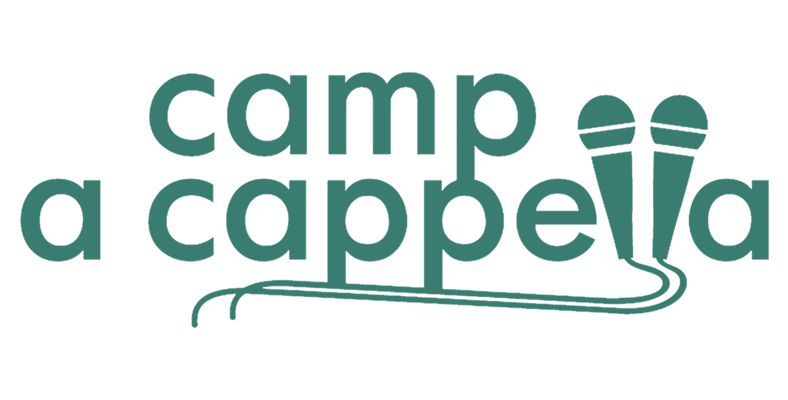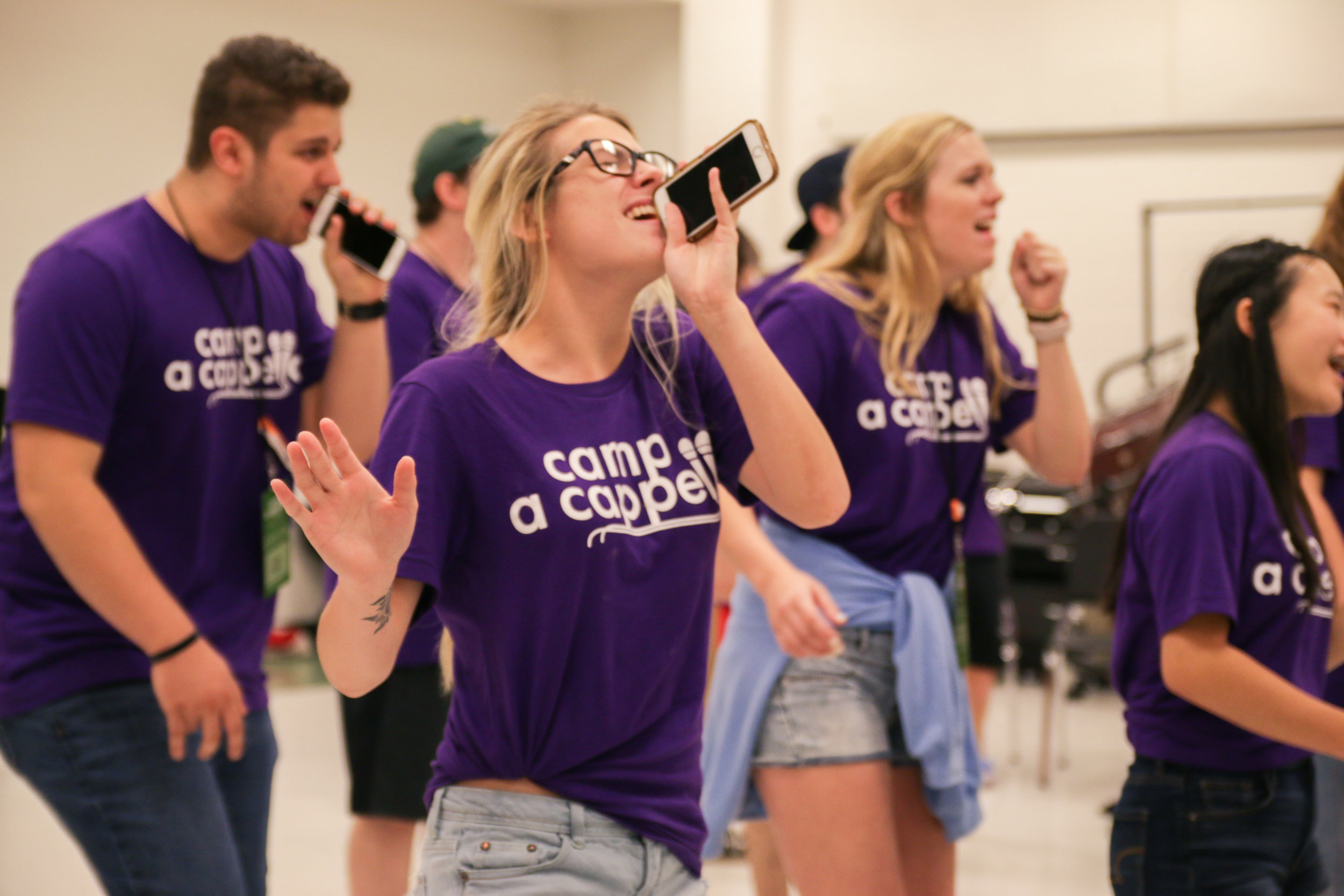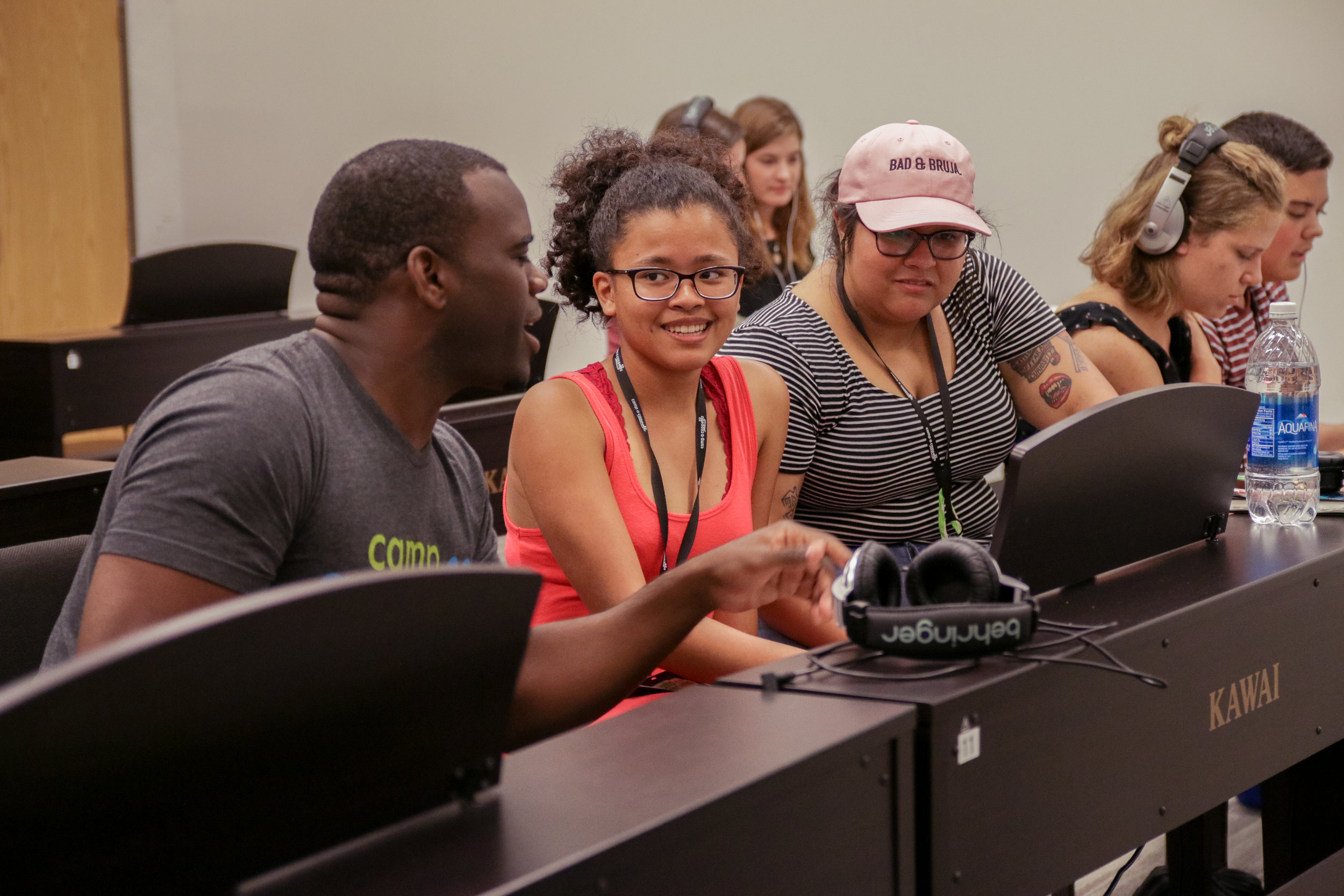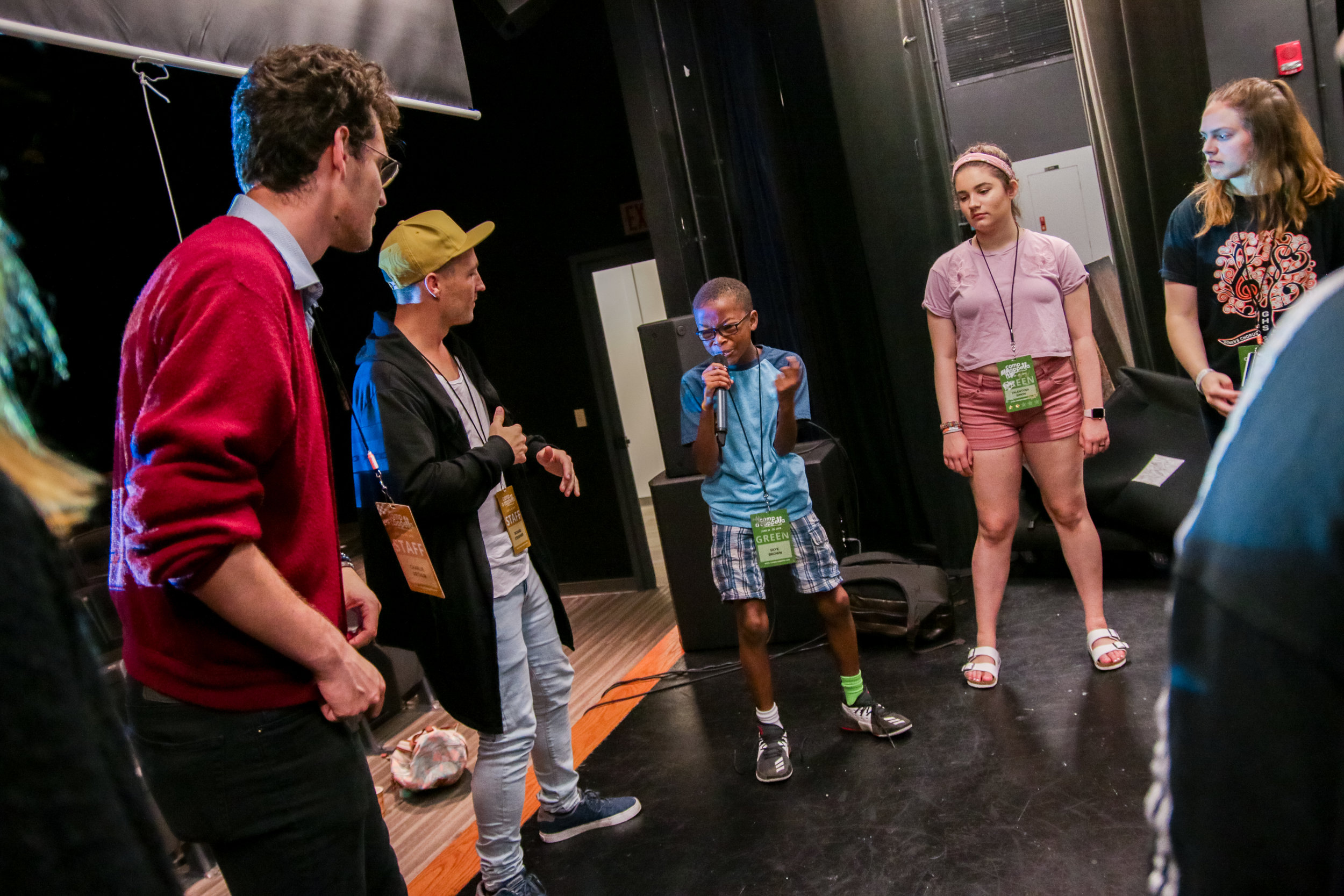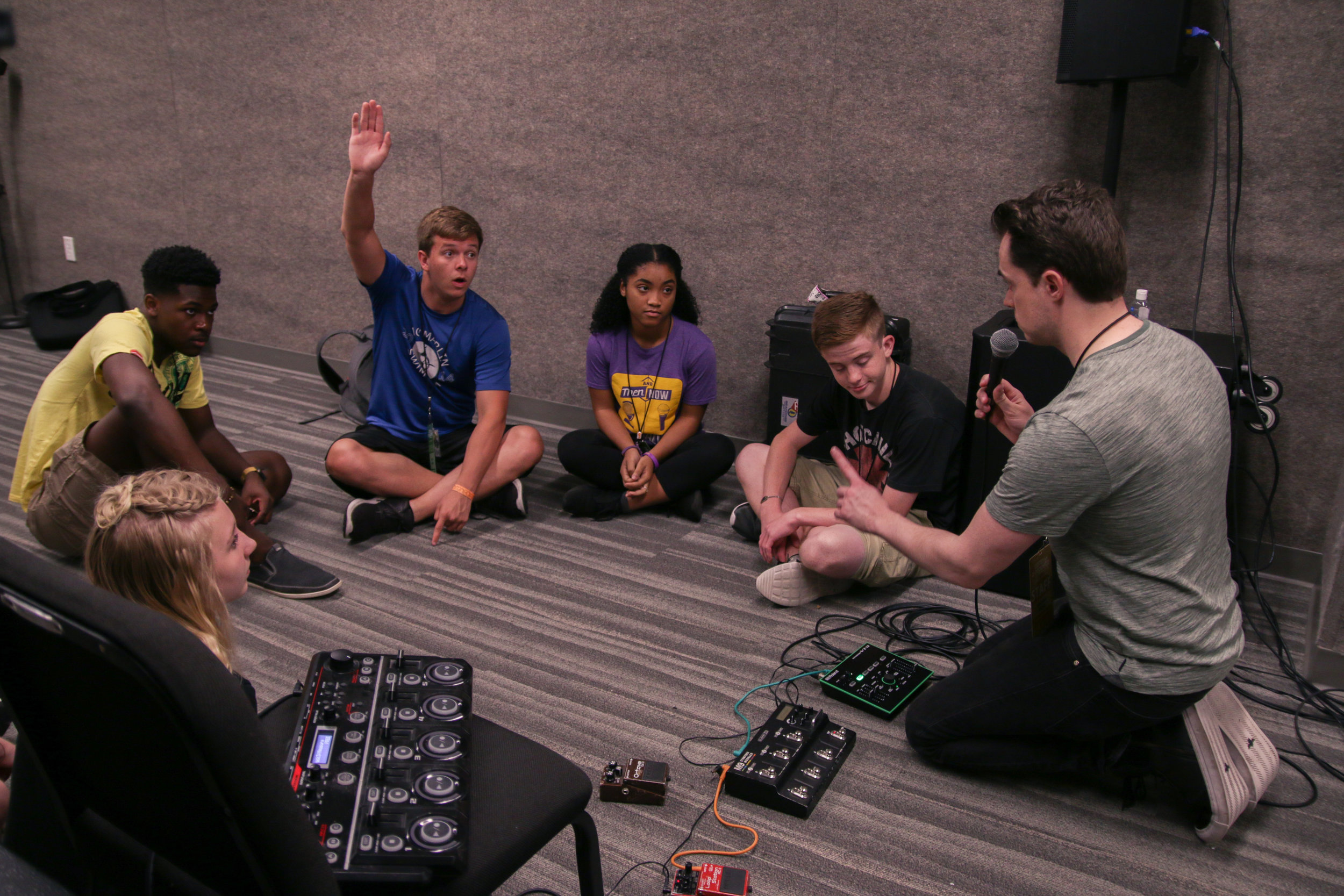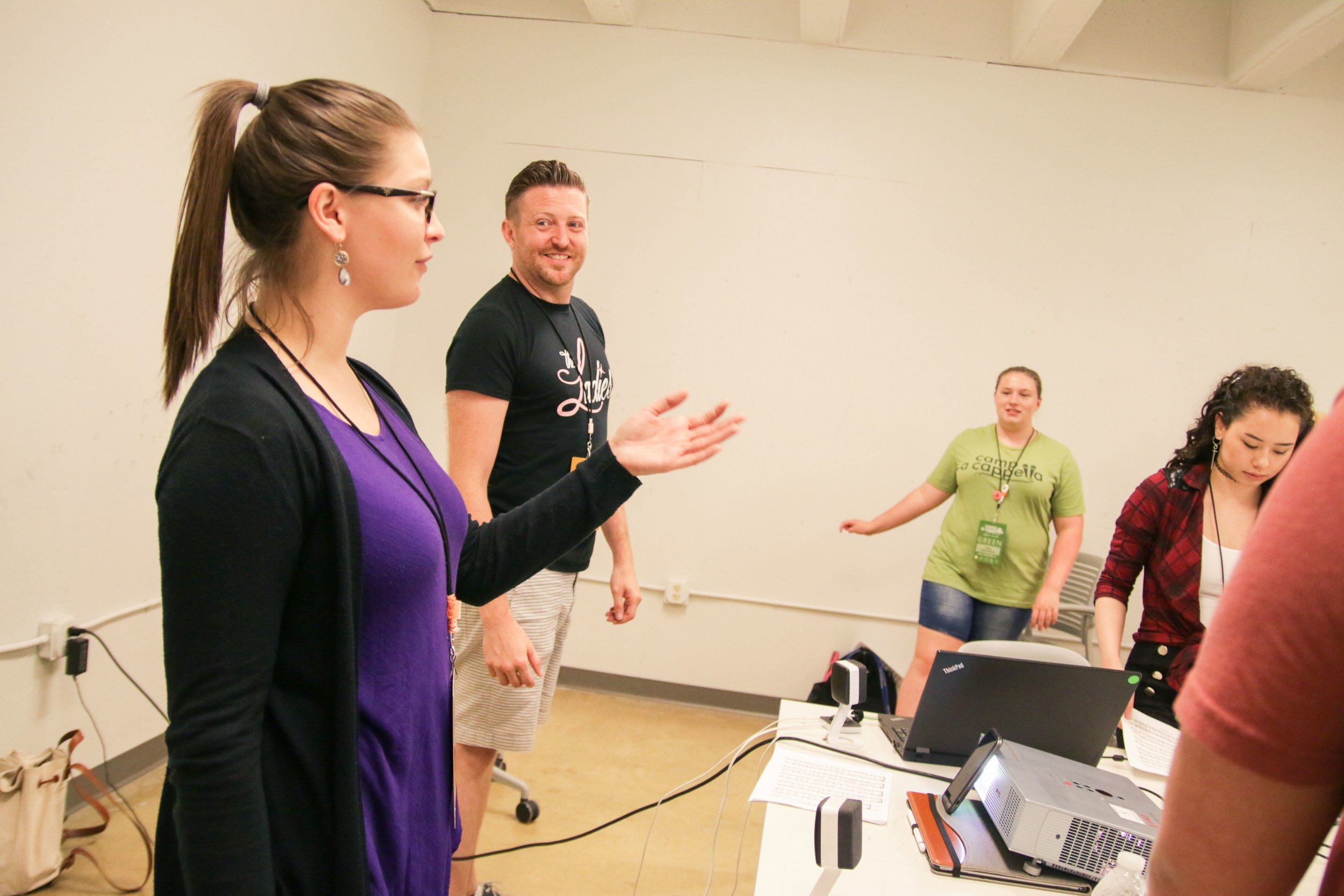Learning Opportunities
Students have the opportunity to get hands on experience learning from some of the most award-winning, highly experienced instructors in all aspects of a cappella. Check out our classes from previous years!
Keep an eye out for updates!
Beginning Arranging
(Suggested level for 7th-10th graders)
Students should be interested in learning the basic steps to approaching an original arrangement for their vocal ensemble. We will study voice ranges, chord structure, appropriate syllables, texture, text, style, and group formation. We will work as a class to develop a short, performable arrangement of a contemporary tune. We will also work on some improvisational skills as we build vocal lines in our own voice/drum parts. Prerequisites usually include a basic knowledge of music theory (note-names, counting skills), a basic idea of ranges, and intermediate sight-reading/aural skills knowledge. Finale, Sibelius, and previous dictation practice is also a plus!
By the end of this course, students should feel comfortable self-arranging an a cappella chart without full transcription, within a rehearsal setting.
Advanced Arranging
(Suggested level for 11th graders through adults)
Students should be interested in delving deeper into stretching the boundaries in their writing and arranging. We will study song meaning, expression through writing, stylistic choices, writing for group strengths and weaknesses, song form and transitions, and how to draw inspiration and incorporate it into the work. We will work as a class to develop a short, performable arrangement of a contemporary tune, and will also work on some improvisational skills as we build vocal lines in our own voice/drum parts. Prerequisites would include a more advanced knowledge of music theory, prior experience with arranging for vocal ensembles, and intermediate-advanced sight-reading/aural skills knowledge. Students in this aca-major should bring samples of their arrangements to the course as we may explore how to improve our own charts.
By the end of this course, students should feel comfortable self-arranging an a cappella chart with full transcription for use with their own group.
Audio Recording
We’re diving head first into the engineering deep end! From conception to final mix, together we’ll explore the entire recording process by recording our own tracks! For this hands-on, dynamic curriculum we’ll be working together in ProTools and Melodyne to bring our project to life, so there’s no experience or equipment required… but be prepared to take notes! A notebook and writing utensil are required for this aca-major!
By the end of this course, students should be able to set-up a session in ProTools, record multiple tracks, and tune them using Melodyne. Students will also become familiar with the terminology and equipment associated with recording arts technology.
Barbershop
Barbershop, the cool but quirky uncle of a cappella singing, packs a secret punch that can really up your game in every a cappella genre. Called A Cappella’s martial art by none other than Deke Sharon himself, Barbershop singing trains you to be a better ensemble singer, to tune better, to interpret music better, and to perform at the highest artistic levels. In short, this best-kept-secret makes you an all-around better musician. In this Aca-major, using various barbershop music examples, learn about singing harmony and how to match, balance and blend with each other and your melody singer to bring that extra sparkle, excitement and emotion to every performance; learn about phrasing and musical interpretation using the lyrics as a guide; learn about accessible and believable performance and how to truly connect with your audience.
By the end of this course, students will be gain an understanding of skills and strategies in the world of barbershop singing; these strategies will then inform the singers all around musicianship.
Live Production
Learn about live production in a cappella music (lights and sound reinforcement). The focus is this aca-major is on basics of staging, technology, and the process of setting up for an event. This is a beginner level class and we ask students who are interested in learning and pursuing production in school or in their communities enroll. Additional areas of study include several concepts related to “best practices” in live sound:
Microphone Technique
Gain
Volume control
Signal Flow and Routing
Safety Techniques
Protecting your equipment
Transporting your equipment safely
Proper power conditioning
Ear Protection
Basics of Live Sound EQ
Basics of Live Sound FX
Understanding your concert Venue
Running Monitors for gour group
Acquiring Equipment
Reliable equipment
Reliable vendors
By the end of this course, students should have the ability to set-up, tear down, live sound equipment for an a cappella production. Additionally, students should begin to understand the requirements of the individual “running” sound.
DELIVERING the solo: the heart of a cappella
Students will focus on the heart of a cappella - the solo. So much rehearsal time in a cappella groups is spent working the group’s delivery of an arrangement, building group dynamics, and learning to function as part of a unit. This aca-major is designed to help you find the star soloist within, using practical, emotionally derived approaches. We'll talk, sing, and explore our way through song choice and repertoire, ornamentation/riffing, imitation vs. innovation, motivation, and other advanced techniques. We will also discuss tips and tricks as you learn to take your solos from standard sing-alongs to spectacular storytelling. Additional elements may include brief vocal anatomy, healthy singing techniques, and how to kill that solo without killing your voice!
By the end of this course, students should better understand how to deliver an aca-amazing solo performance.
Beginning Song Writing
This novice vocal percussion aca-major is for anyone who is interested in learning about vocal drumming. The lessons will focus on crafting basic sounds and rhythms, practicing methods to self-improve, and understanding the role of rhythm in a successful a cappella group. Those with little or no experience regarding rhythm or beatboxing are welcome in this workshop because things won't get too intense. You won't be put on the spot and there are no wrong answers! Here we will explore the fun of making silly noises with friends and letting loose so that you can find your own potential.
By the end of this course, students should understand basic concepts and how to create vocal percussion sounds.
The Rhythm section
The Rhythm Section is for VP’s and basses serious about improving their craft and taking their expertise to the next level. Attendees should be prepared to work and receive constructive feedback on an individual level. A pre-existing general knowledge of vocal percussion and bass technique is strongly recommended in order to benefit from the class. Lessons will focus primarily on song structure, tone, placement, groove, breath patterns and techniques to construct complex rhythms independently. Bringing a personal notepad is recommended but not required.
By the end of this course, students will be be able to utilize strategies to become more effective members of the rhythm section.
Vocal Electronica
Students will learn how to use looping technology and electronic effects in their live performances . Students will also learn about the equipment and software used to enhance live shows, as seen in the groups Dakaboom and ARORA. Technology can tend to be somewhat off-putting in a genre so focused on the natural. However, if used creatively, electronics can help enhance the power of the voice and open up new exciting sound worlds to explore and get lost in. Whether you are looking for something simple but effective to bring to your group of 15 or if you are interested in creating an hour long one (wo)man show, this major will be sure to open up a universe of creative possibilities for your art.
By the end of this course, students will be able to set-up, operate, and perform using a live looping station. The will also become familiar with appropriate use of technology in the live performance setting.
Beginning Vocal percussion
This novice vocal percussion aca-major is for anyone who is interested in learning about vocal drumming. The lessons will focus on crafting basic sounds and rhythms, practicing methods to self-improve, and understanding the role of rhythm in a successful a cappella group. Those with little or no experience regarding rhythm or beatboxing are welcome in this workshop because things won't get too intense. You won't be put on the spot and there are no wrong answers! Here we will explore the fun of making silly noises with friends and letting loose so that you can find your own potential.
By the end of this course, students should understand basic concepts and how to create vocal percussion sounds.
ICCA/ICHSA: BUILDING A WINNING SET - With BEN Spalding
In this aca-major, ICHSA winning director Ben Spalding will discuss various methods for creating a winning set. Ben’s top high school a cappella group “Forte” has been to ICHSA Finals five times, received national runner up four times, and was crowned the ICHSA Champion in 2016. Furthermore, Ben has coached many other high school and professional groups including Vocalight, third place winner at Varsity Vocals “Open.” In this course, Ben will share how he selects songs, solos, arrangers, choreography, and more. The rise and fall of the set will serve as the vehicle that should take the audience and judges on an emotional journey. Ben will show you how to make your group stand out. Topics for discussion include song selection (arranging), choosing the correct soloist, performing with emotion, eliciting the best performance from your group, and making your set memorable through emotional rise and fall.
By the end of this course, students should understand the components of a winning competition set as well as strategies for implementing that set.
DIRECTING AN A CAPPELLA GROUP
AN OPEN FORUM FOR CURRENT AND PRESERVICE EDUCATORS-With BRODY MCDONALD
Contemporary a cappella is one of the fastest growing vocal genres of today. It can be a vehicle for recruitment in the middle and high school, a great community tool, and a way to continue singing in college. However, getting a contemporary a cappella program off the ground and running can be a daunting task. However, students who enroll in this aca-major should fear not! Our co-founder, and amazing director, Brody McDonald will hold an open forum for current and pre-service educators as they find themselves either starting or currently directing an a cappella program/group. How to hold auditions, selecting repertoire, finding arrangers, and managing groups will be the lense through which Brody approaches this broad topic. Participants in the class will guide the discussion as Brody McDonald shares years of experience with the class.
However, this class will also be hands on and informative as the camp a cappella staff prepares numerous resources and channels for troubleshooting with this class. This a cappella class is for those who wish to become better leaders and educators. This course will open to college level students, directors, and educator campers. Participants are required to bring a method of taking notes and collecting data.
By the end of this course, students will have access to a large pool of information needed to start and maintain an a acappella program.
Video production
Developing the skills necessary to place your group on the digital map is a task that can be overwhelming. During this aca-major, students will learn the basic technical skills in video editing and how to effectively manage a video shoot. Rachel Chalhoub, former producer of Inside A Cappella and director of video production for The Vocal Company, will be your guide through this hands on course. In our videography class the importance of having engaging online video content for your a cappella group will be discussed. Students should also expect to discuss time management when planning and executing an amazing video shoot. However...designing, organizing, and authentically capturing your content will be for nothing if you aren’t able to get it uploaded and distributed on the web. In this aca-major troubleshooting the various technologies associated with videography will be explored.
If you are interested in this aca-major, please bring an external storage device (flash-drives must be at least 16GB, external hard drives of at least 100 GB will be most beneficial) You are welcome to bring a digital camera that is capable of shooting audio/video (smartphones or flip cameras are welcome). If you do decided to bring your own equipment, please bring the associated cords needed for charging and data transfer. There will be a computer lab with internet available for video management and production. The lab is equipped with iMovie. However, if you have your own laptop with video editing software, feel free to bring that as well.
By the end of this course, students should feel comfortable filming and editing a video for their a cappella group.
A CAPPELLA AND THE ART OF MOVEMENT
As the genre of contemporary a cappella continues to expand, so does the creativity and expression of the performing group. The number of groups adding choreography to their music is growing with each passing year. In this aca-major, the art of movement is explored as students will discuss, design, and implement their very own choreography. Great choreography can immensely add to a group’s set of music. However, poorly designed and implemented choreography can have a drastically negative effect on a group’s set. Key aspects of this aca-major also include discussing those characteristics that may help or hurt a set of music.
By the end of this course, students should feel comfortable writing and creating their own visual plans for repertoire. Additionally, students will discuss strategies for implementing and manipulating musically appropriate choreography.
The actor singer
In this aca major, students will study authenticity in vocal performance by bringing to life the intentional language of the song they select. Students will learn techniques of inquiry in order to better understand their audience. The art of word prosody in song lyrics will be discussed in great detail. Adjectives, adverbs, pivotal words, words of time, conjunctions, and terms of endearment are embed in the music of today’s culture.
Singers are not just singers…
They are storytellers, messengers, and serve as the connection between the art and the audience. Students who perform live music must learn to become the “Actor-Singer.” Take your performing to an entirely new level with this aca-major!
By the end of this course, students will be able to utilize techniques of word prosody, vocal authenticity, audience knowledge, and audience engagement in their performances. Additionally, skills learned in this course will prepare students for musical and lyrical analysis when choose repertoire.
Advanced SONGWRITING
In this advanced level aca-major, students will continue to develop skills of songwriting through exercises, demonstrations, and peer review. Prerequisites for this aca-major include, but are not limited to: beginning songwriting (previous years), possession of a collection (big or small) of original music, experience with selecting poetry to set to music, and/or experience with writing lyrics. Students in the aca-major should be prepared to share and workshop their original music alongside one of today’s most transformative artists, Pricsa. In this aca-major, Prisca will break down original songs to their very foundation in order help young students build them into true reflections of artistic emotion and feeling. Advanced songwriting is all about autonomy of songwriting. This aca-major is about learning how... to learn how to song write.
By the end of this course, students will be comfortable with the terminology and skills needed to not only write original music, but self-reflect on how to improve and further one’s writing abilities.
Music Industry
The music industry is an ever changing field. This constant state of change is realized through rapid advances in communication, dissemination of media, pervasive social media and, above all, advances in music technology itself. You may find yourself asking, “ What is the music industry?” That question is not easily answered! In this aca major, Camp A Cappella resident artist Prisca, will walk you through her experiences in the music industry. Areas of focus include, life in the professional music arena, how to increase the clout and following of your music, working with labels and agents, protecting your media, and what it looks like to make a living as a musician. The music industry, is a vast network of, communications, media, and art. With Prisca as your guide, we are confident students will learn about the ins and outs of this exciting world.
By the end of this course, students will engage in meaningful discussion, understanding music industry terminology, and walk away with strategies to explore their potential pursuits of the music world.
